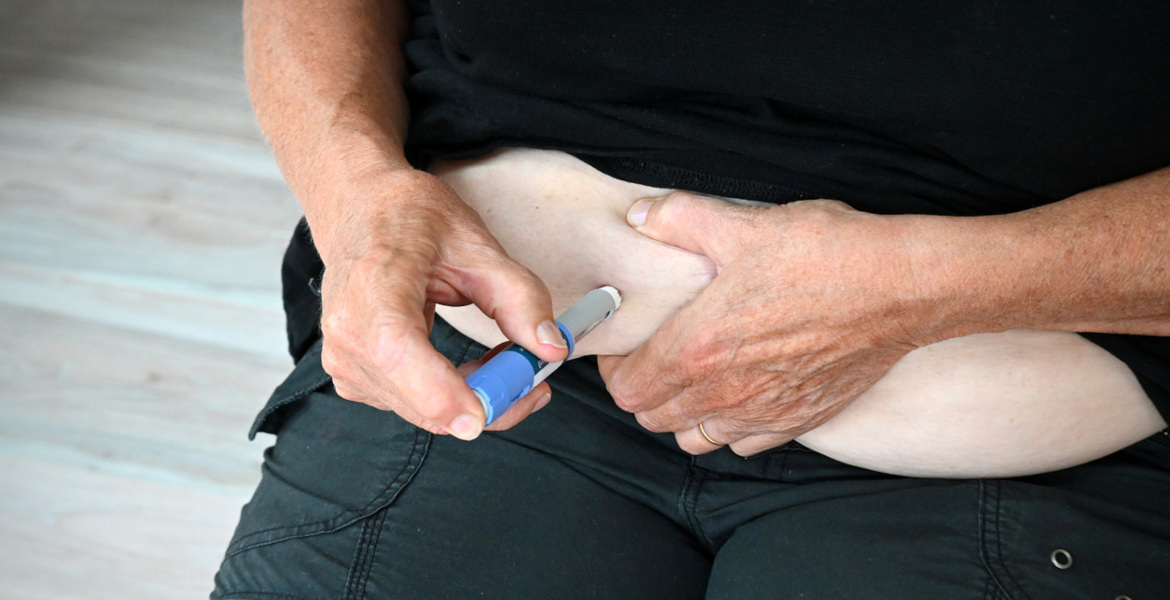Drinking kombucha tea may help lower blood sugar levels in individuals with type 2 diabetes, a new study suggests. After consuming the fermented beverage for four weeks, participants’ fasting blood sugar levels decreased to a healthy level.
Kombucha is a fermented tea made with the kombucha fungus, also known as Scoby (Symbiotic Culture of Bacteria and Yeast). The tea is rich in beneficial bacteria and is often considered a health drink. The drink is believed to have originated in northern China, mentioned as early as around 220 BC.
In a recent study, researchers wanted to investigate the beverage’s potential positive impact on individuals with type 2 diabetes, as previous studies have shown the drink can lower blood sugar levels. This is the first study examining kombucha’s effects on diabetic individuals, says one of the study’s co-authors, Dan Merenstein, a professor of family medicine at Georgetown University in Washington.
– Some laboratory and rodent studies of kombucha have shown promise and one small study in people without diabetes showed kombucha lowered blood sugar, but to our knowledge this is the first clinical trial examining effects of kombucha in people with diabetes, he states.
Significant decrease
In the pilot study, published in Frontiers in Nutrition, a group of 12 individuals with type 2 diabetes consumed about 8 ounces of kombucha or a placebo drink daily. After a two-month period, the kombucha and placebo were swapped between groups to “wash out” the biological effects of the beverages. The participants then drank kombucha daily for another four weeks. None of the groups knew which drink they received during this period.
After the four weeks, the average fasting blood sugar levels decreased from 164 to 116 milligrams per deciliter, whereas the placebo drink did not yield any statistically significant reductions. According to the American Diabetes Association, pre-meal blood sugar levels should be around 70 to 130 mg/dl.
– We were able to provide preliminary evidence that a common drink could have an effect on diabetes. We hope that a much larger trial, using the lessons we learned in this trial, could be undertaken to give a more definitive answer to the effectiveness of kombucha in reducing blood glucose levels, and hence prevent or help treat type 2 diabetes, says another co-author, Dr. Chagai Mendelson.
Beneficial microorganisms
The researchers also examined the composition of fermenting microorganisms in kombucha to determine which ingredients might be the most active. They found the drink primarily contained lactic acid bacteria, acetic acid bacteria, and a form of yeast known as Dekkera. Although the composition can vary depending on the drink and its maker, the researchers believe these bacteria are likely present in most kombucha beverages.
Type 2 diabetes is a growing public health concern in countries like Sweden and the USA. Many individuals are also in a so-called “pre-stage,” at risk of developing the disease. Therefore, the researchers believe this study holds promise for the future.
– Much more research is needed, but this is very promising, Professor Merenstein concludes.
Make Your Own Kombucha
To obtain a kombucha culture (Scoby) and a starter liquid, one can search in places like Facebook groups. Starter kits are also available for purchase online.
Ingredients
- 2 liters of water
- 1 1/2 tablespoons of black or green tea
- 2 cups of granulated sugar
- 2 cups of kombucha
- 1 kombucha culture (Scoby)
Instructions
- Bring half of the water to a boil and add the tea. Remove from heat and stir in the sugar. Cover and let steep for approximately 30 minutes. Then strain out the tea leaves/bags.
- Pour the liquid into a clean glass jar that can hold at least three liters. Add the remaining water to the jar and cover with a thin cloth. Allow the water to cool completely. If it's too hot when adding the Scoby, it could perish.
- Once cooled, pour in the kombucha and place the Scoby on top of the liquid. Cover with a cloth and secure with a rubber band. Allow it to sit for one to two weeks at room temperature.
- Once done, save the Scoby and some kombucha to use for future batches.








